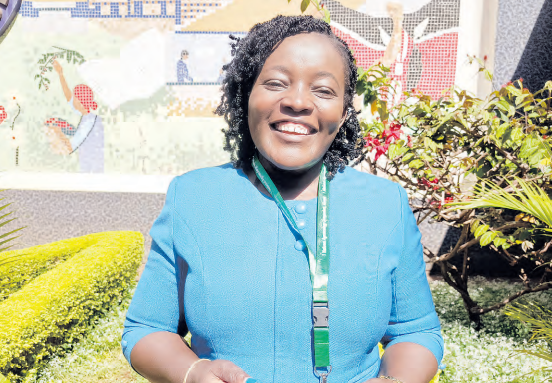
Agriculture Principal Secretary Paul Ronoh has called for a shift towards sustainable and resilient farming practices to address Kenya’s growing challenges of climate change, food insecurity and social inequality.
Speaking at the National Agroecology Symposium in Nairobi, said there’s need for transformative agricultural models that can protect natural resources while ensuring food security for future generations.
“This symposium comes at a time when we are grappling with severe droughts, food shortages, and the increasing impacts of climate change,” he said.
“These challenges threaten the food security and resilience of our country, hence the urgent need for transformative agricultural practices.”
The symposium, which brought together government representatives, private sector leaders, farmer organisations, researchers, academia, development partners and donors, aimed to explore and promote agroecological solutions that can help safeguard food systems while preserving natural resources and cultural heritage.
According to the Economic Survey 2022, Kenya’s agriculture sector saw its growth slow to just 0.1 per cent in 2021, down from 5.2 per cent in 2020.
The slowdown has been attributed to a combination of factors, including climate change, soil and land degradation, overreliance on external inputs, loss of biodiversity and the lingering effects of the Covid-19 pandemic and the global disruptions caused by the RussiaUkraine war.
At the global level, food insecurity remains a pressing issue.
The ‘State of Food Insecurity in the World 2024’ report, published by Food and Agriculture Organization, International Fund for Agricultural Development, Unicef, World Food Programme and World Health Organization, reveals that about 760 million people globally faced hunger in 2023.
This is about one in every 11 people worldwide, and one in every five in Africa.
These figures underscore the need for a paradigm shift in food production systems to address both the immediate and long-term challenges of hunger, climate change and poverty.
Participants at the symposium said agroecology is a holistic approach that addresses sustainable farming practices, biodiversity conservation, and climate resilience, and that is holds the key to transforming food systems.
Rosinah Mbenya, country coordinator for PELUM, a regional civil society organisation, called for agroecology to be placed at the centre of global climate discussions, particularly at COP 29 in Baku, Azerbaijan, happening from November 11 to 22.
“We need more attention to agroecology in climate discussions so that we can contribute to safe and resilient food systems,” Mbenya said.
“Climate change disproportionately affects marginalised groups, including women, youth and indigenous communities, who are already facing the brunt of environmental shocks.”
Mbenya pointed out the unpredictable weather patterns that have plagued Kenya in recent years, including delayed rains this year and ongoing droughts over the past two years.
She stressed the importance of supporting farmers, who are on the frontlines of the climate crisis and are most vulnerable, to land and soil degradation, biodiversity loss and environmental stress.
“Agroecology offers a way forward. It’s time we put farmers at the centre of the conversation, especially as agriculture remains a critical livelihood for millions of Kenyans,” she added.
At the symposium, discussions also focused on the critical role of research in advancing agroecology.
Ernesto Mendez, a professor of agroecology at the University of Vermont in the US, noted the need for a shift in how agricultural research is conducted.
“We need to work with farmers
and make them central to the
research process. This means that
farmers should not just be subjects
of research but active participants,”
Mendez said.








